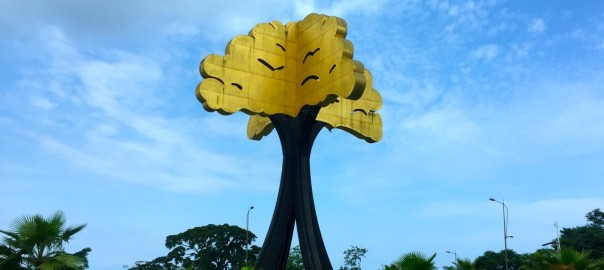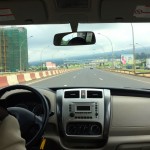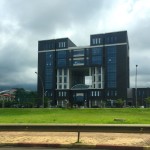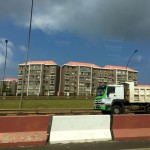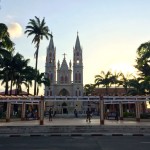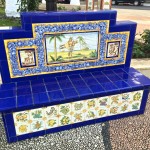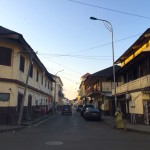From the top of Mount Cameroon to the reclusive state of Equatorial Guinea, this week in Wandering West Africa.
The week started with a two day climb of Mount Cameroon, the highest mountain in the west of Africa. I’ll have a specific post about this adventurous activity this week, though I can say that even if it is almost 2,000m less than Kilimanjaro, it was still a difficult climb and my legs are still sore a week later!
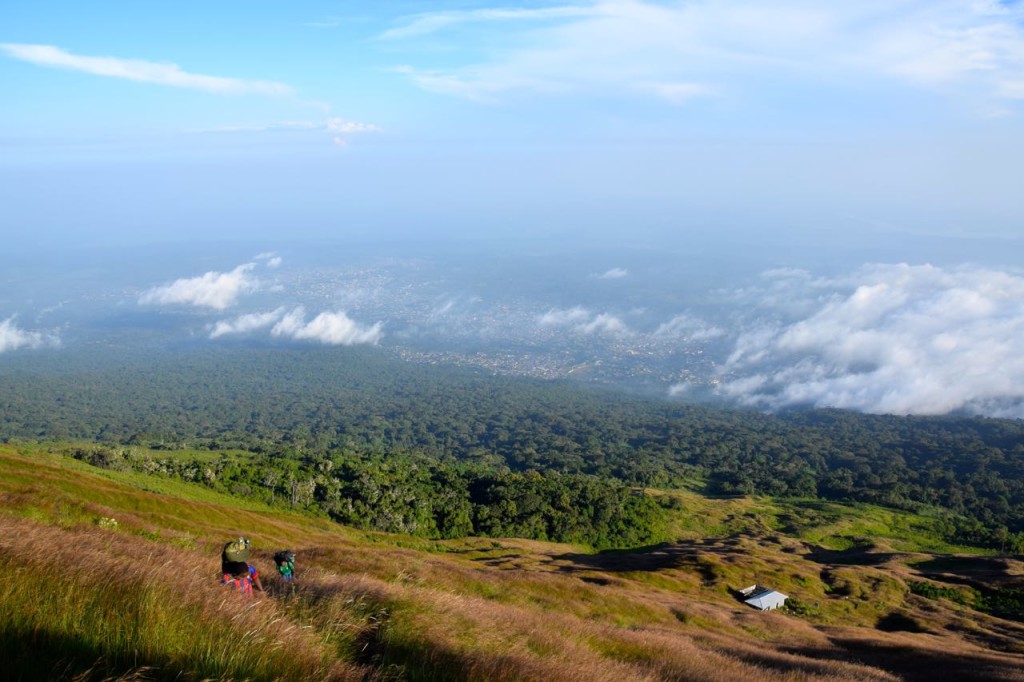
The tours for the climb mostly leave from Buea, a small peaceful town at the base of the mountain. This was easy to reach by public transportation, though thanks to the construction on the main road right out of Douala, there was an extra hour to the journey.
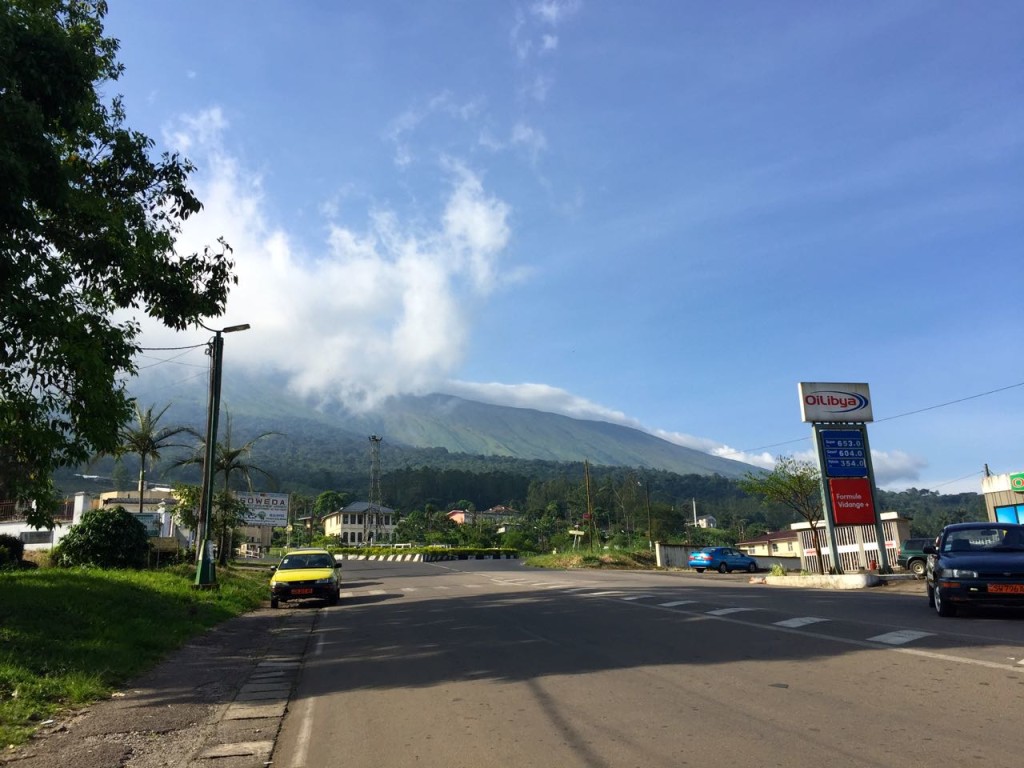
Nigeria Visa in Buea
I spent the next two days after the climb mostly at the Nigerian consulate and at the whim of the secretary to run around Buea and produce whichever document he requested. As this was the fourth Nigerian consulate/embassy I’ve visited for a visa, I already knew most of the documents they would request. Like the others, the secretary initially refused to process my request stating that I was not a resident of Cameroon. Patient and polite persistence is key and eventually I was able to apply for a transit visa as they have granted them for tourists before.
So I was hopeful and spent the day getting passport pictures, photocopies, and print outs of flight and hotel bookings. After waiting a couple of hours in the afternoon, I was told to come back the next day.
The next morning I stood at the large green steel gates like a lost puppy waiting to be let in. The secretary asked me to sit tight in the waiting room. Eventually he took my file and said “I’ll try”.
Moments later he came back and told me that it was impossible. He gave all the documents to the consul but he would not approve it. The secretary seemed genuinely sorry and even said “I thought you would get it!” I departed with a handshake and mentally prepped myself for the next embassy. I’d try again in Yaounde.
That same day I crammed in the back of a minibus and an hour and a half later arrived in the largest city of Cameroon, Douala.
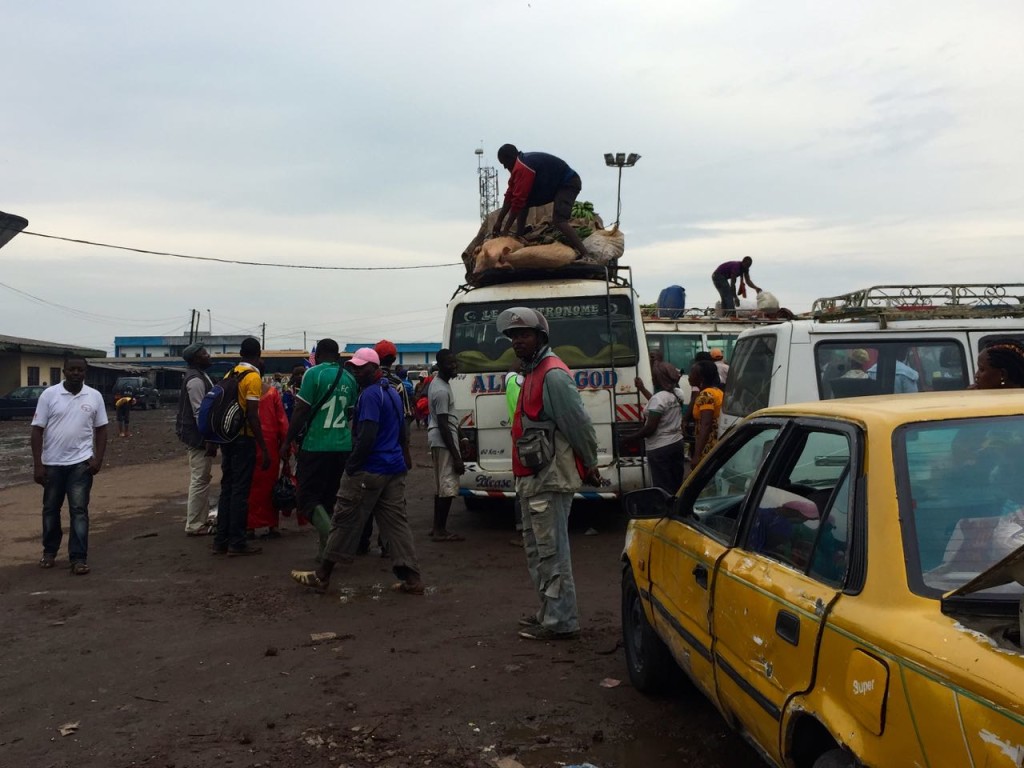
Douala is not a pretty city. This industrial port city is a mess of traffic, noise, and lacks interesting sites to visit. Walking around in the evening isn’t advised either, though it seemed fine during the day.
Equatorial Guinea Visa in Douala
On Wednesday morning, I headed to the consulate of Equatorial Guinea to try to get a visa for the next day. Not many people know about Equatorial Guinea and even less know how difficult it is to get a visa from this reclusive state. I only started to discover how tough it was when chatting with people. I was told it was “little North Korea” and one of the top five most difficult visas to get. This did not give me much confidence.
I had already attempted getting the visa in Gabon with all the supporting paperwork, including a police report from hometown, only to be denied the next day.
When I asked, “May I know the reason why?” The secretary smiled and said “The ambassador does not approve.”
This time I was prepared with all the previous paperwork, a hotel reservation, and a confirmed roundtrip flight leaving the next day in order to give a sense of urgency.
On entering the consulate, the receptionist took my paperwork upstairs and came back down saying I didn’t have an invitation letter. I managed to convince her that I had the proper paperwork and was allowed upstairs to the three administrative secretaries seated side-by-side in a small room.
A lady here shifted through my documentation and questioned my bank statement, which she handed to another secretary to review. He proceeded to question me about the document in English. He approved it after I complimented his excellent English. Then the first secretary put all the papers together and gave me the coveted visa request document to fill out!
The last step was for the assistant to the consul to review and question me. During the interview, I explained I really wanted to visit the Sofitel as I heard it was a beautiful property and it was a last minute trip decision. Then I immediately requested to get the visa the same day. The man surprisingly said, “yes it is possible”. As all my paperwork checked out and it was clear I was only going to be in their country for just over 24 hours, he seemed content to present the application to the consul.
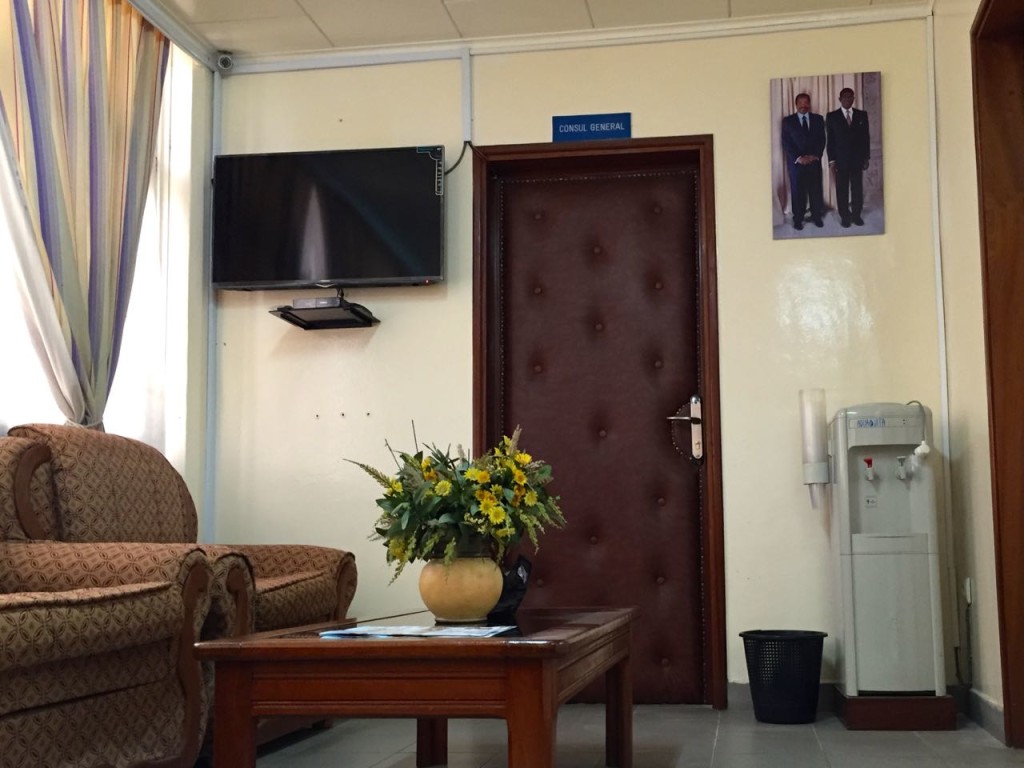
Eventually he brought me back into his office and explained that it was possible to issue to visa but that there would be an “express express fee”. He explained that visas are usually issued two weeks or a month later. For the same day delivery I would need to pay an additional fee of CFA100,000 (about $160) on top of the visa fee of CFA51,000. Though this is extremely high for a visa express fee, it was still a bargain compared to the CFA500,000 ($800) the embassy in Gabon requested.
So I acted reluctant and accepted the offer which seemed to please the assistant. I rounded up and paid $260 and then waited another two hours. The assistant called me in and explained that I could just come tomorrow morning before my flight and pick up the passport. He showed me the visa sticker in my passport waiting for a signature and assured me it would be ready by then.
I did it! I got one of the hardest visas in the world!
Or so I thought.
The next morning I arrived at the office just after 9 am. My flight departs at 12:30, so I had to be in the airport by 10:30 am.
The assistant I met with was there and told me to take a seat. I waited twenty minutes then went up to his office. He noticed me and told me to wait. As he did not give me my passport right away, I figure you never got the signature. I saw him try to enter the locked door of the vice-consul, then disappeared outside the back staircase of the building. Uh oh. Not good.
I waited and waited. 10 a.m. 10:30 a.m. 11 a.m.
I couldn’t wait any longer. I had to check into my flight or I would lose the ticket. I explained to the administrative secretaries that I needed to get to the airport and I would be back to get my passport.
Luckily the airport is nearby the consulate. Ten minutes later, I was in line trying to check-in. The staff at Douala airport were not helpful in the least. I explained the issue and requested that they check me in and hold onto my boarding pass until I come back with the passport. “Impossible to check-in without a passport!” the lady yelled. I went to Ethiopian Airline’s sales office where a manager was present. This kind lady listened and immediately helped me get a boarding pass and said that if I could get my passport back here in twenty minutes, she would let me onto the flight. I thanked her and off I went back to the consulate.
Fortunately, the assistant was back in his office and promptly handed me my passport when I rushed in. Yelling a thank you, I ran down and headed back to the airport.
I made it. I somehow managed to get my visa and catch my flight!
After a twenty minute hop on a Boeing Dreamliner, I arrived in Malabo, the capital of Equatorial Guinea country 155!
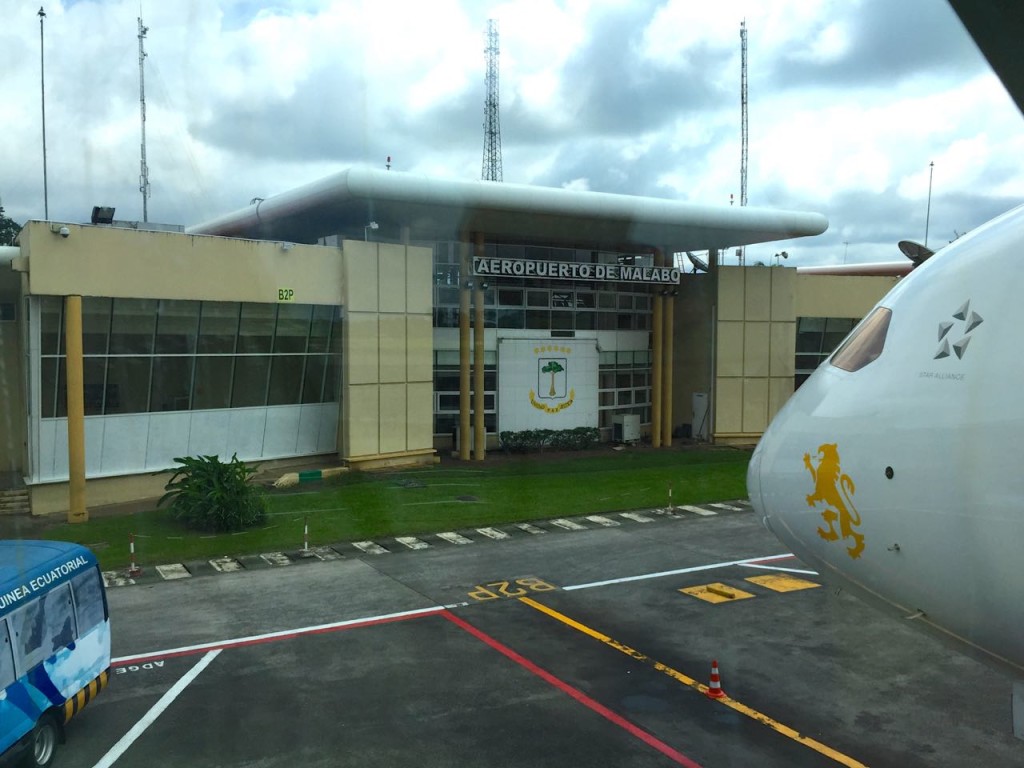
Equatorial Guinea
So… Equatorial Guinea. I really wasn’t quite sure what to expect so I visited with an open mind.
Here’s a little background from Wikipedia:
Since the mid-1990s, Equatorial Guinea has become one of sub-Saharan Africa’s largest oil producers. With a population of almost two million, it is the richest country per capita in Africa, and its gross domestic product (GDP) per capita ranks 69th in the world; However, the wealth is distributed very unevenly and few people have benefited from the oil riches. The country ranks 144th on the UN’s 2014 Human Development Index. The UN says that less than half of the population has access to clean drinking water and that 20% of children die before reaching five.The authoritarian regime ruling Equatorial Guinea has one of the worst human rights records in the world, consistently ranking among the “worst of the worst” in Freedom House’s annual survey of political and civil rights.
If you read up on the president you’ll find a man who overthrew his uncle in a coup, executed him, and has been ruling with an iron fist since 1979. He has amassed a vast fortune through corruption while much of his country suffers, not to mention the claims that he considers himself a god or has been rumored to practice cannibalism in order to gain powers.
Driving on its massive well paved highway flanked with new construction and modern buildings, one would think that this was a well developed country blossoming with growth and visitors. However there are small clues that this is not the case.
The roads are mostly deserted and dotted with security cameras every 100 meters. Lampposts and bus stops hit from previous accidents are not repaired. There is a heavy police presence. Villages hidden from the highway seem to be very basic and undeveloped.
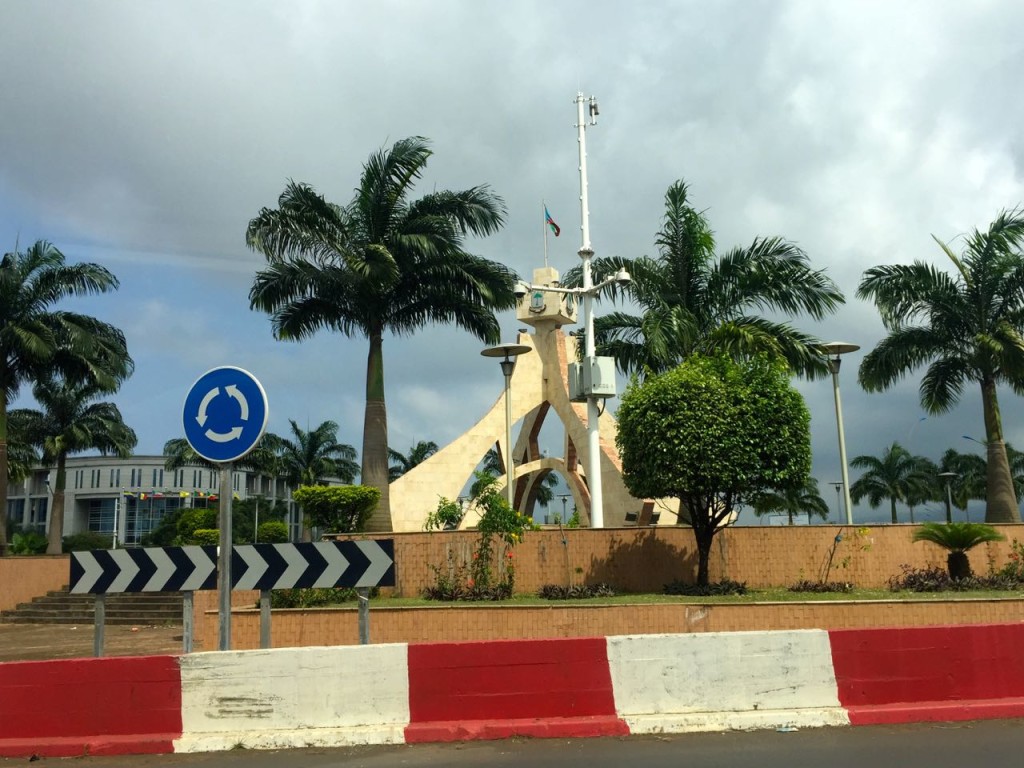
There’s just a general sense that something is not quite right, but it’s difficult to pinpoint.
I stayed at the luxurious Sofitel Malabo Sipopo Le Golf which was truly an oasis, with a private beach, island, and golf course onsite. They advised that they had no tourists and an elderly guest even started laughing when he saw me with my camera saying “You’re the first tourist I’ve seen here! Well done! Hahaha…”
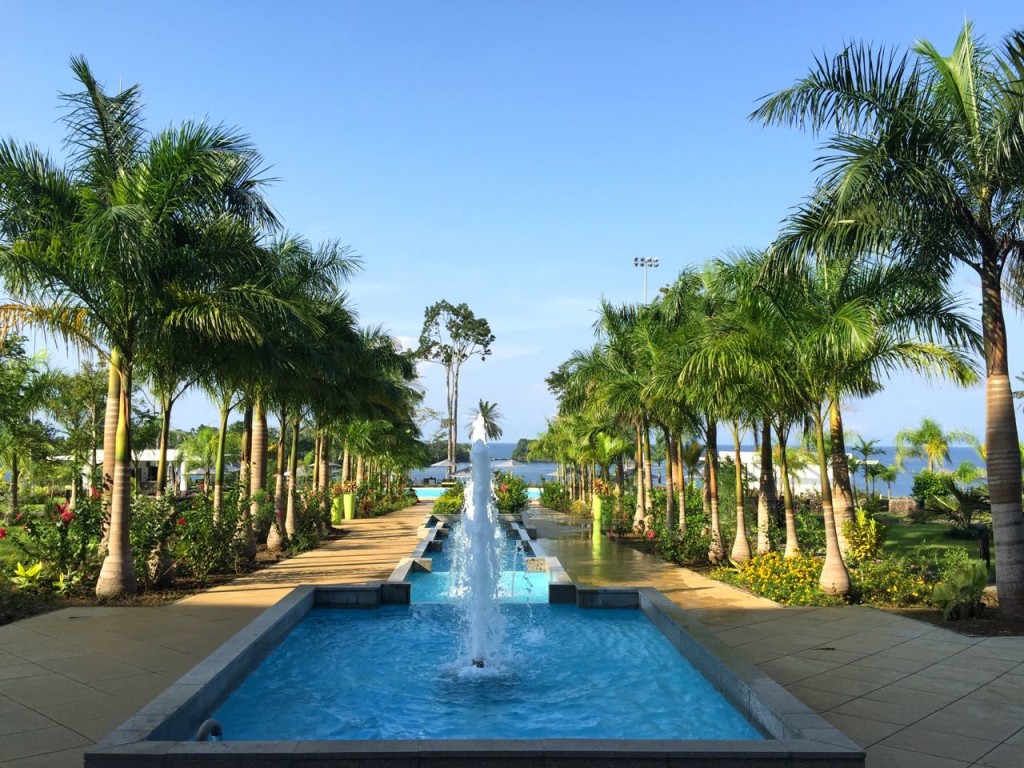
Sofitel organized a tour of the capital, Malabo. We drove through the old center and visited the cathedral. This is a highlight and the most visited area. There aren’t too many sights or activities mainly because they don’t have any tourists. This meant I had to buy another football shirt in place of my tourist shirt.
The locals of course were friendly like any other nation and very welcoming. They seemed to hope for more visitors and rightly so. The island is naturally very beautiful, with massive Ceiba trees (on the country crest and flag) popping out of the forest around a volcanic mountain.
Overall it was quite unsettling being a tourist in the country where taking a wrong photo will land you in jail. Though I loved the hotel experience, I didn’t mind leaving the country.
The next day I caught my flight to Douala and headed directly to the train station where I purchased a ticket to Yaounde for the next morning. I was told to be there at 5 am. Looking for a hotel near the station, I vetoed several brothels that charged by the hour until I found a decent hotel with wifi.
Early the next morning, I was on my way to Yaounde. First class tickets were sold out, but I managed to get a second class ticket which was quite comfortable. Four passengers sit together around a small table on each side of the car. Service came through selling food and snacks.
The highlight of the four hour trip to the capital, was the jungle scenery. The train passes through the mountains and over bridges. Villages dot the distance and you are offered a glimpse into rural life.
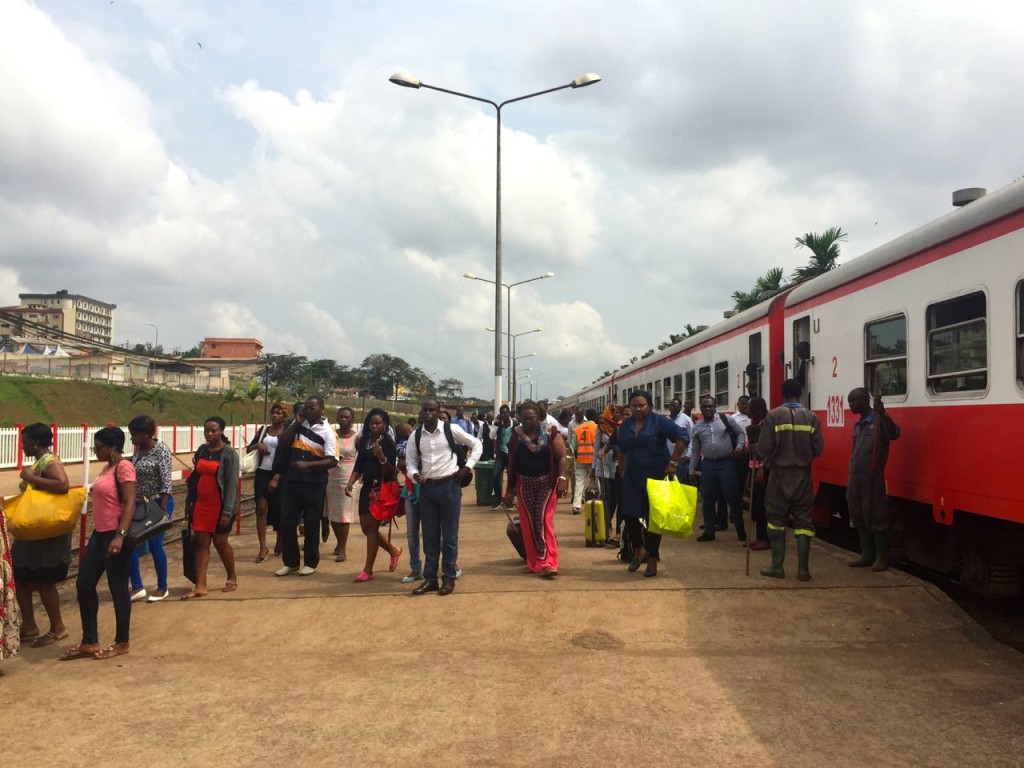
Arriving in Yaounde, I checked in the Franco Hotel where I will be basing my visa runs next week.
More embassy visits and bureaucracy? I can’t wait!
